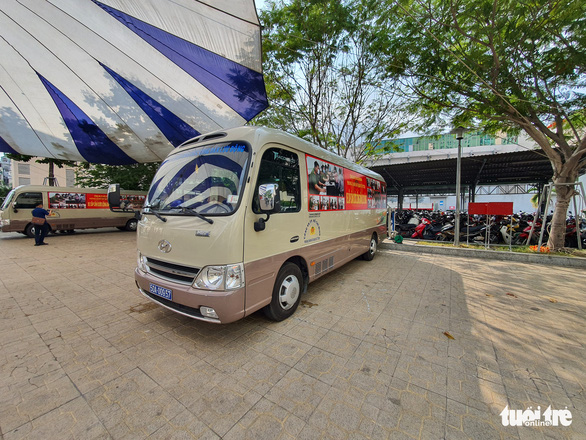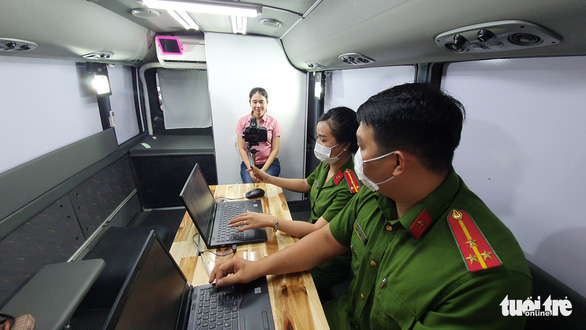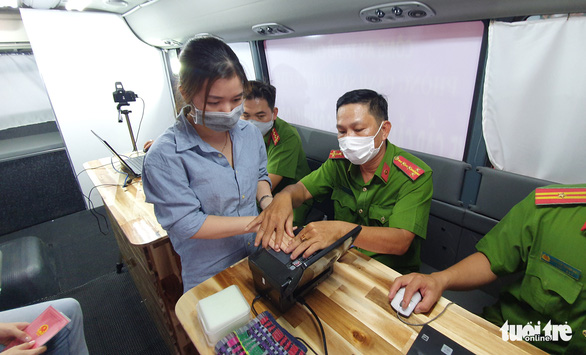Police of Ho Chi Minh City have introduced two travelling booths, which will bring chip-based ID card registration offices to those in need, especially the senior and people in remote areas.
The two mobile booths, which were remodeled from two 30-seater cars, have been launched from 5:00 pm Thursday in a press conference on the national population database and citizen ID card issuance and management initiative organized by the Ho Chi Minh City Department of Public Security.
According to police officers, Ho Chi Minh City has set up 91 offices for the registration of chip-based ID cards, while 80 more are slated for the future.
 |
| A travelling service booth, which brings registration of the new chip-based ID card to those in need, is seen in Ho Chi Minh City, March 18, 2021. Photo: Minh Hoa / Tuoi Tre |
Simultaneously, the municipal Department of Public Security also designed two travelling service booths to serve the old, people in social protection centers, and those in remote areas.
The first two have been introduced in Thu Duc City and Binh Chanh District, and will operate throughout the week between 7:00 am and 10:00 pm, or even more hours per day based on realistic circumstances.
Each travelling service booth is expected to process at least 300 documents per day, said Senior Lieutenant-Colonel Huynh Thi Thu Trang.
Earlier on September 2020, Vietnamese Prime Minister Nguyen Xuan Phuc approved a proposal by the Ministry of Public Security to roll out chip-based national ID cards as early as 2021.
The ministry inaugurated the distribution of barcode-based ID cards in 2016. So far, this design is only available in 16 cities and provinces nationwide, with a total of 16 million cards issued, while the rest of the population are still sticking to the old 9- and 12-digit ID versions.
 |
| A resident takes profile photo for her chip-based ID card in a travelling service booth in Ho Chi Minh City, March 18, 2021. Photo: Minh Hoa / Tuoi Tre |
 |
| A resident submits fingerprints for her chip-based ID card in a mobile service booth in Ho Chi Minh City, March 18, 2021. Photo: Minh Hoa / Tuoi Tre |
Chip-based ID cards only differ from previous versions in the addition of an electronic chip, while other information, including the ID number, will remain unchanged.
Addressing recent conspiracies on the new card design, officials of Ho Chi Minh City recently affirmed that the new ID card has no tracking function.
Like us on Facebook or follow us on Twitter to get the latest news about Vietnam!




















































